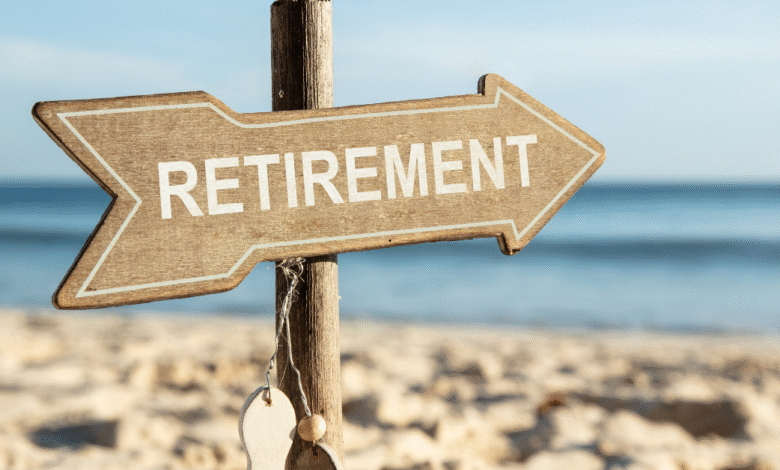14 Habits Of People Who Retire Early

So you’re tired of the 9-to-5 grind and dreaming about sipping coffee on a Tuesday morning while everyone else is stuck in traffic? Yeah, I get it.
Retiring early isn’t just some fantasy reserved for lottery winners or tech billionaires. Real people are doing it, and honestly, it’s not as crazy as it sounds.
The secret? It’s all about the habits. People who manage to escape the workforce decades before their peers aren’t necessarily smarter or luckier. They just do things differently. They make choices that seem small at first but compound into serious financial freedom over time.
I’ve spent years studying personal finance, and let me tell you, the patterns are clear. Early retirees share specific behaviors that set them apart. And the best part? You can start adopting these habits today, regardless of where you’re starting from financially.
Ready to find out what separates the early retirees from the rest of us? Let’s break down the 14 habits that can help you punch out of work way before your 65th birthday.
14 Habits Of People Who Retire Early
Want to spend your days doing what you actually love instead of answering emails from your boss? Then you need to understand how early retirement actually works. It’s not magic, and it’s definitely not luck.
Here are the specific habits that people who retire early practice religiously. Some might surprise you, others might seem obvious, but all of them work together to create financial independence.
1. They Are Frugal

Let’s get one thing straight: frugal doesn’t mean cheap. It means you’re intentional about where your money goes instead of letting it slip through your fingers on stuff you don’t actually care about.
Think about it. How many subscription services are you paying for right now that you barely use? When’s the last time you actually went to that gym you’re still paying $50 a month for? Early retirees ruthlessly cut these kinds of expenses.
Here’s what being frugal actually looks like in practice:
- Cooking at home instead of dropping $15 on lunch every workday
- Buying quality items that last instead of cheap stuff you’ll replace constantly
- Using free entertainment options instead of always paying for experiences
- Shopping with a list and sticking to it (no impulse buys!)
- Comparing prices before making purchases, especially big ones
The math is pretty wild when you actually crunch the numbers. If you spend $15 on lunch five days a week, that’s $3,900 a year. Over 10 years? Nearly $40,000. Now imagine that money invested and growing instead.
I’m not saying you should never enjoy yourself or that you need to live on ramen noodles. But early retirees understand the difference between spending on things that genuinely improve their lives and wasting money on convenience or keeping up with the Joneses.
2. They Track Their Net Worth And Spending

You can’t improve what you don’t measure. It sounds like boring business advice, but it’s absolutely true when it comes to your money.
Most people have no idea where their money actually goes each month. They just know their account seems lower than it should be by the end of the pay period. Early retirees? They know exactly where every dollar is going.
Tracking your net worth means knowing the total value of everything you own minus everything you owe. This includes your savings accounts, investment accounts, retirement funds, home equity, and yes, your debts too.
Why does this matter? Because watching your net worth grow is incredibly motivating. It’s like having a scoreboard for your financial life. When you see that number climb month after month, it reinforces all those frugal choices you’re making.
As for tracking spending, there are tons of apps that make this easy now. Mint, YNAB, and Personal Capital are all solid options. Pick one and actually use it consistently.
When you track your spending for even just one month, you’ll probably discover some uncomfortable truths. Maybe you’re spending way more on takeout than you realized. Or perhaps those “small” online purchases are adding up to hundreds of dollars monthly.
3. They Choose Affordable Housing

Here’s a truth bomb: your house is probably your biggest wealth killer. And I’m not talking about maintenance costs (though those are brutal too).
The average American spends over $2,100 per month on housing. That’s insane! And it’s easily the biggest obstacle between most people and early retirement.
Early retirees make different choices. They might:
- Buy a smaller home than they can technically afford
- Choose a less trendy neighborhood with lower costs
- Rent instead of buying if it makes financial sense in their area
- Consider house hacking (renting out rooms or a separate unit)
- Stay in a starter home longer instead of constantly upgrading
I know what you’re thinking. “But don’t I deserve a nice place to live after working hard?” Sure you do. But do you deserve it more than you deserve freedom from work in your 40s or 50s?
The housing decision is one of the biggest financial choices you’ll ever make. Early retirees prioritize keeping this cost low so they can pour money into investments instead. They’d rather live modestly now and retire decades early than have a fancy house and work until they’re 70.
Plus, here’s something most people don’t consider: a smaller, more affordable home means lower property taxes, lower insurance, lower utilities, and lower maintenance costs. The savings compound in multiple directions.
4. They Increase Their Earnings

Okay, so we’ve talked a lot about cutting expenses. But there’s only so much you can cut before you’re living in a cardboard box eating beans from a can. At some point, you need to focus on the other side of the equation: making more money.
Early retirees understand that increasing income dramatically accelerates the path to financial independence. Every extra dollar you earn can be invested, and thanks to compound interest, that dollar could turn into $5 or $10 by the time you retire.
So how do you actually increase your income? Here are strategies that actually work:
- Negotiate raises at your current job (most people never even ask!)
- Develop high-value skills that command higher salaries
- Switch jobs strategically every few years for pay bumps
- Start a side hustle in your spare time
- Freelance or consult in your area of expertise
- Turn a hobby into a money-making venture
The beautiful thing about increasing your income is that if you maintain your current lifestyle, every extra dollar goes straight to savings and investments. If you’re making $50,000 and bump that to $60,000, you could potentially save an extra $10,000 per year (after taxes).
Over 15 years with a 7% return, that extra $10,000 annually becomes over $250,000. That’s the power of earning more and investing the difference.
5. They Bank Their Raises
Speaking of raises, here’s where most people mess up big time. They get a raise and immediately inflate their lifestyle to match. New car, fancier apartment, more expensive restaurants. It’s called lifestyle inflation, and it’s a retirement killer.
Early retirees do something different. When they get a raise, they pretend it never happened. They keep living on their previous salary and dump the entire raise into savings and investments.
Think about how powerful this is. You’re already living comfortably on your current salary, right? So if you get a 5% raise, you literally don’t need that money for daily life. It’s pure bonus money that can go straight toward your financial independence goals.
Here’s what I recommend: the moment you get a raise, immediately increase your automatic transfers to your savings and investment accounts. Don’t give yourself time to adjust to having that extra money in your checking account, because once you do, you’ll find ways to spend it.
Set up automatic transfers to a high-yield savings account like those offered by Ally Bank or Marcus by Goldman Sachs. Make it automatic so you never even see the money.
This habit alone can shave years, maybe even a decade, off your working career. And honestly, it’s one of the easiest habits to implement because you’re not actually giving up anything you currently have.
6. They Create Passive Income

Want to know the real secret to early retirement? It’s not just about saving a massive pile of money. It’s about creating income streams that don’t require you to show up to an office every day.
Passive income is money that flows in whether you’re working or not. And early retirees are obsessed with building these income streams while they’re still working their regular jobs.
What does passive income actually look like? Here are some real examples:
- Dividend-paying stocks and index funds
- Rental properties that generate monthly cash flow
- Creating digital products (courses, ebooks, templates)
- Royalties from creative work (books, music, photography)
- Peer-to-peer lending through platforms like LendingClub
- Building a blog or YouTube channel with ad revenue
- Affiliate marketing income from recommendations
Now, let’s be real for a second. Despite the name, “passive” income usually requires a lot of upfront work. Buying a rental property takes research, capital, and ongoing management. Building a successful blog takes years of consistent content creation.
But here’s why it matters: once these income streams are established, they can replace your salary. When your passive income exceeds your living expenses, congratulations, you can retire. You don’t need millions in the bank if you have $4,000 coming in every month from various sources and only need $3,500 to live.
Early retirees typically build multiple passive income streams so they’re not dependent on any single source. Diversification isn’t just for investments; it applies to income too.
7. They Are Not Afraid To Step Out Of Their Comfort Zone
Let’s be honest: pursuing early retirement is uncomfortable. It means making choices your friends and family might not understand. It means saying no to things that seem normal to everyone else.
While your coworkers are financing new cars and booking expensive vacations, you’re driving a paid-off Honda and camping in state parks. That takes guts, and it definitely takes you out of your comfort zone.
Early retirees embrace discomfort because they understand it’s temporary. They’re willing to:
- Have awkward conversations about money with their partners
- Turn down social events that don’t fit their budget
- Take calculated risks with career changes or side hustles
- Learn new skills even when it’s frustrating
- Move to lower cost-of-living areas away from friends and family
The comfort zone is called that for a reason. It’s comfortable! But nothing great happens there. If you keep doing what you’ve always done, you’ll keep getting what you’ve always gotten.
I’m not saying you should make reckless decisions or do things that genuinely scare you. But if the idea of retiring 20 years early excites you, then you need to be willing to do things differently than the average person.
Remember, the average person retires at 65 after working for 40+ years. Do you really want to be average? Then you can’t live like everyone else.
8. They Prioritize Happiness
Here’s where things get a bit philosophical. What’s the point of retiring early if you’re miserable the entire time you’re working toward it?
Early retirees understand that money is just a tool. The real goal isn’t to have a giant pile of cash. The real goal is freedom, time, and the ability to do what makes you happy.
This might sound contradictory after I just told you to be frugal and make uncomfortable choices. But there’s a difference between mindless spending and investing in genuine happiness.
Smart early retirees spend money on things that truly bring them joy while cutting ruthlessly on everything else. Maybe that’s:
- High-quality coffee beans because the morning ritual matters to them
- Annual camping trips with their kids to create memories
- A gym membership they actually use religiously
- Hobbies that genuinely enrich their lives
The key is being intentional. Don’t cut everything fun from your life and become a miserable penny-pincher. That’s not sustainable, and you’ll eventually burn out and give up on your early retirement goals.
Instead, figure out what genuinely makes you happy (not what advertising tells you should make you happy) and budget for those things. Cut the rest without guilt.
Also, remember why you’re doing this. You’re working toward having every single day free to spend however you want. That’s the ultimate happiness investment.
9. They Are Big On Optimism
Pursuing early retirement requires a hefty dose of optimism. You’re essentially betting that your plan will work, that the markets will generally trend upward, and that you’ll figure out obstacles as they come.
Pessimists rarely retire early because they’re too focused on everything that could go wrong. What if the market crashes? What if I get sick? What if I lose my job? These are valid concerns, but if you let them paralyze you, you’ll never make progress.
Here’s something interesting: research from the Proceedings of the National Academy of Sciences found that optimistic people actually live longer. So not only does optimism help you reach early retirement, but it also helps you enjoy more years of that retirement. Win-win!
Optimism in this context doesn’t mean being naive or ignoring risks. It means believing that you can handle challenges when they arise and that your efforts will pay off over time.
When early retirees face setbacks (and they do face them), they don’t spiral into despair. They adjust their plans and keep moving forward. Market down 20%? That’s a buying opportunity. Unexpected expense? Time to pick up an extra freelance project.
The journey to early retirement is long, often 10-20 years. You absolutely need optimism to sustain motivation over that timeline. Celebrate small wins along the way. Hit your first $10,000 in savings? That’s amazing! Reached a net worth of $100,000? Time to acknowledge that milestone!
10. They Have A Clear Sense Of Purpose
Why do you want to retire early? And I mean really why, not just “because work sucks” (though that’s valid too :)).
People who successfully retire early have crystal clear purposes driving them. Maybe they want to:
- Spend more time with their kids while they’re still young
- Travel extensively before they’re too old to enjoy it
- Pursue creative projects that don’t pay the bills
- Volunteer for causes they care deeply about
- Simply escape the stress that’s destroying their health
This sense of purpose is what keeps you going when your friends are posting vacation photos from Bali and you’re eating homemade sandwiches for the third day in a row.
Your purpose needs to be stronger than your desire for short-term gratification. When you’re tempted to buy something you don’t need, your purpose reminds you why you’re making different choices.
I recommend writing down your purpose and putting it somewhere visible. On your bathroom mirror, as your phone wallpaper, on a sticky note in your wallet. Wherever you’ll see it regularly and be reminded why you’re on this path.
Without a clear purpose, early retirement is just an abstract concept. With a clear purpose, it becomes a compelling vision that pulls you forward even when things get tough.
11. They Stay Healthy

Here’s something most personal finance advice overlooks: your health is your wealth. Literally.
Medical expenses are one of the biggest financial risks in America. Even with insurance, a serious illness can derail years of careful saving. Plus, if you’re too sick to work, you can’t earn money to invest toward your early retirement goals.
Early retirees take their health seriously. They:
- Exercise regularly (which is free or cheap)
- Eat nutritious food (which actually saves money compared to processed junk)
- Get adequate sleep every night
- Manage stress through meditation, hobbies, or therapy
- Stay on top of preventive care and regular checkups
Think about it from a pure financial perspective. If you’re healthy, you avoid expensive medical bills, you take fewer sick days (meaning more income), and you have the energy to work on side hustles or passive income projects.
Plus, what’s the point of retiring early if you’re too unhealthy to enjoy it? You want to retire with the energy and health to actually do all those things you’ve been dreaming about.
The good news is that many healthy habits are actually cheaper than unhealthy ones. Cooking at home is healthier and cheaper than eating out. Walking or running is free exercise. Drinking water instead of soda saves money and improves health.
Your body is the vehicle that will carry you through your working years and into retirement. Take care of it.
12. They Keep Learning About Money
Financial literacy isn’t something you master once and then forget about. The people who retire early are constantly learning about personal finance, investing, tax strategies, and economic trends.
They read books like “The Simple Path to Wealth” by JL Collins or “Your Money or Your Life” by Vicki Robin. They listen to podcasts like ChooseFI or “BiggerPockets Money.” They follow financial blogs and actually implement what they learn.
Why does continuous learning matter so much? Because the financial landscape is always changing. Tax laws change. New investment vehicles emerge. Economic conditions shift. If you’re not staying informed, you’re probably leaving money on the table.
Here are some topics worth diving deep into:
- Tax optimization strategies (legal ways to reduce your tax burden)
- Different investment vehicles (401k, IRA, HSA, taxable accounts)
- Real estate investing fundamentals
- Behavioral finance (understanding your own money psychology)
- Retirement withdrawal strategies
The beautiful thing about financial education is that it has an incredible ROI. Spending a few hours learning about tax-loss harvesting could save you thousands of dollars. Understanding asset allocation could add years to your retirement timeline.
You don’t need to become a financial expert or get a degree in finance. But you should understand the fundamentals of how money works, how investing works, and how to make your money work harder for you.
13. They Develop Hobbies
Wait, hobbies? What do hobbies have to do with early retirement? Actually, quite a lot.
First, hobbies give you something to do when you retire. I know that sounds obvious, but many people retire without a plan for how to spend their time, and they end up bored, depressed, or going back to work.
Early retirees often start developing their retirement hobbies years before they actually retire. They:
- Learn musical instruments
- Take up woodworking or other crafts
- Get serious about photography
- Start gardening
- Join community sports leagues
- Volunteer regularly
Second, hobbies provide low-cost entertainment while you’re still working toward retirement. Instead of spending money going out every weekend, you’re engaged in activities that cost little or nothing.
Third, some hobbies can actually turn into income streams. That woodworking hobby could become an Etsy shop. Photography skills could lead to wedding gigs. Gardening expertise could turn into a YouTube channel or consulting work.
The key is finding hobbies that genuinely interest you, not just picking something because it might make money. The income potential is a bonus, not the main goal.
Having rich, fulfilling hobbies makes the journey to early retirement more enjoyable and makes retirement itself more meaningful. You’re not just retiring from something (work), you’re retiring to something (a life full of activities you love).
14. They Spend Less Even After Retirement
Here’s a reality check that catches many aspiring early retirees off guard: you still need to be mindful of spending after you retire.
Early retirement doesn’t mean you’ve won the lottery and can now spend without limits. You’re living off your savings and investments, which means every dollar you spend is a dollar that’s no longer growing and working for you.
People who successfully stay retired early (without going back to work) continue many of the frugal habits that got them there:
- They stick to a budget even without a paycheck
- They track their spending to ensure they’re not drawing down savings too fast
- They look for deals and discounts
- They avoid lifestyle inflation just because they have more free time
The general rule of thumb is the 4% rule: you can safely withdraw 4% of your retirement savings each year without running out of money. So if you have $1 million saved, you can spend $40,000 per year.
But here’s the thing: if you suddenly start spending $60,000 per year because you’re bored and shopping online all day, you’re going to run out of money. Fast.
Early retirees often find that they actually spend less in retirement because they’re not commuting, buying work clothes, or stress-spending. But they stay vigilant and don’t let their spending creep up just because they have more free time.
The mindset shift is crucial: retirement isn’t about spending all the money you saved. It’s about living off the returns your money generates while preserving the principal for as long as possible.
Benefits Of Retiring Early
Alright, so we’ve covered all the habits. But let’s talk about why you’d want to adopt these habits in the first place. What’s actually so great about retiring early?
Beyond the obvious “not having to work” benefit, early retirement offers some serious advantages that improve your overall quality of life. Let’s break them down.
Improved Health And Well-Being
Work stress is literally killing people. I’m not being dramatic. Chronic stress from demanding jobs contributes to heart disease, high blood pressure, diabetes, and a whole host of other health problems.
When you retire early, you remove that major source of stress from your life. No more Sunday night dread. No more dealing with difficult bosses or office politics. No more rushing through traffic to make it to meetings on time.
The health benefits of early retirement include:
- Lower stress levels and reduced cortisol
- More time for exercise and physical activity
- Better sleep quality and quantity
- Time to prepare healthy meals instead of grabbing fast food
- Reduced risk of burnout and depression
Early retirees often report feeling years younger than their working peers. They have energy for activities they enjoy. They sleep better. They feel more relaxed and present in their daily lives.
And here’s the kicker: better health in retirement means lower medical expenses, which means your retirement savings last longer. It’s a virtuous cycle.
Pursuit Of Purpose And Hobbies
How many people do you know who say things like “I’d love to learn piano, but I just don’t have time” or “Someday I’ll write that book”?
Early retirement gives you the time to actually pursue these passions instead of just dreaming about them. You can finally take that pottery class, learn a new language, or start that nonprofit you’ve been thinking about.
For many early retirees, this is when life actually begins. They’re no longer trading their time for money. They’re spending their time on things that genuinely matter to them.
This could mean:
- Volunteering for causes you care about
- Mentoring younger people in your field
- Creating art, music, or writing
- Building things with your hands
- Traveling and experiencing different cultures
The sense of purpose that comes from these activities is often more fulfilling than any career achievement. You’re no longer defined by your job title or salary. You’re defined by how you choose to spend your time and what you contribute to the world.
Financial Freedom And Independence
There’s something incredibly powerful about knowing you don’t need a paycheck to survive. It changes how you see the world and how you make decisions.
Financial independence means:
- Never worrying about getting laid off
- Not tolerating toxic work environments because you need the money
- Being able to help family members without stressing your own finances
- Making choices based on what you want, not what you can afford
- Sleeping soundly knowing your bills are covered
Even if you choose to keep working after reaching financial independence (many people do!), the dynamic is completely different. You’re working because you want to, not because you have to. That shift in mindset is incredibly liberating.
Financial freedom also means you can be generous in ways you couldn’t before. Want to help your kids with college? Donate to important causes? Support a friend going through hard times? You can do these things without jeopardizing your own financial security.
Reduced Stress And Increased Job Satisfaction
Even if you don’t fully retire, reaching financial independence dramatically reduces work-related stress. When you know you could quit tomorrow without financial consequences, suddenly that annoying project or difficult coworker doesn’t seem so bad.
Many people who reach financial independence choose to keep working but on their own terms:
- Negotiating part-time schedules
- Taking sabbaticals without fear
- Switching to lower-paying jobs they actually enjoy
- Starting businesses without the pressure to succeed immediately
- Saying no to projects or clients that don’t align with their values
This flexibility often leads to increased job satisfaction even for those who keep working. Work becomes something you choose rather than something you’re forced to do.
The stress reduction also extends beyond work. When you’re not constantly worried about money, you’re more present with your family. You sleep better. You enjoy experiences more fully because you’re not mentally calculating whether you can afford them.
Positive Impact On Society
Here’s something that doesn’t get talked about enough: early retirees often have a hugely positive impact on their communities.
With time and financial security, early retirees can:
- Volunteer extensively for nonprofits and community organizations
- Mentor young people starting their careers
- Serve on boards of local organizations
- Teach classes or workshops in their areas of expertise
- Support local businesses and community initiatives
Think about all the talent and experience that’s currently locked up in corporate jobs. When people retire early, they can redirect that talent toward solving community problems and helping others.
Many early retirees find this community involvement incredibly fulfilling. They’re using their skills and experience to make a real difference, not just to increase shareholder value for some corporation.
Plus, by modeling financial independence, early retirees inspire others to take control of their finances. They show that there’s an alternative to working until you’re 65, which can be incredibly motivating for people who feel trapped in the traditional career path.
Final Thoughts
So there you have it. Fourteen habits that can completely transform your financial future and potentially shave decades off your working career.
Here’s the truth: retiring early isn’t about making one big change. It’s about making dozens of small changes that compound over time. It’s about spending less than you earn, investing the difference, and staying consistent for years.
Will it be easy? Absolutely not. You’ll make sacrifices. You’ll have moments of doubt. You’ll watch your friends buy new cars and take fancy vacations while you’re driving your paid-off Honda and camping in state parks.
But here’s what I know from studying hundreds of early retirees: none of them regret the journey. Not a single one wishes they’d spent more money on stuff instead of investing toward freedom.
The beautiful thing is that you can start today. You don’t need to implement all 14 habits at once. Pick two or three that resonate with you and start there. Track your spending for a month. Increase your 401k contribution by 1%. Start learning about index funds.
Small steps compound into big results. The person who retires at 45 instead of 65 gets 20 extra years of freedom. That’s 7,300 days to do whatever they want. That’s worth a few sacrifices, don’t you think?
Your future self will thank you for every dollar you invest today, every unnecessary expense you cut, every raise you bank instead of spend. Financial independence isn’t just about money. It’s about reclaiming your time and your life.
So what are you waiting for? Start building these habits today, and before you know it, you’ll be the one writing about early retirement instead of just reading about it. 🙂








